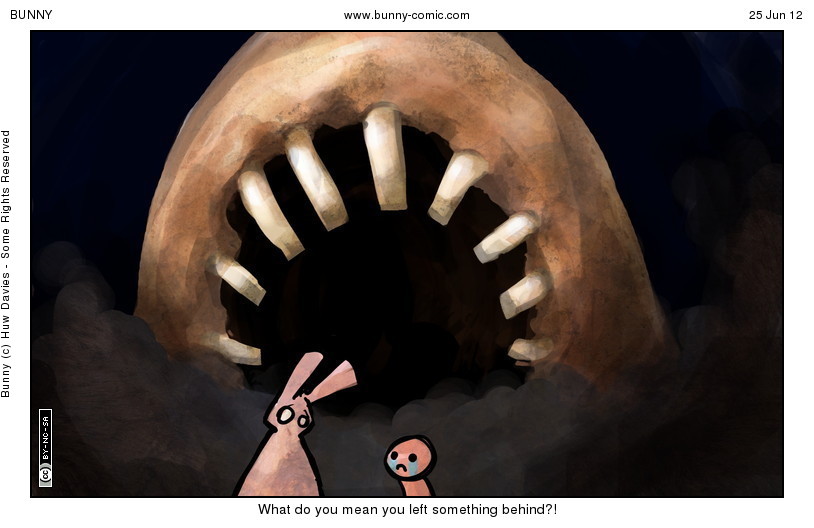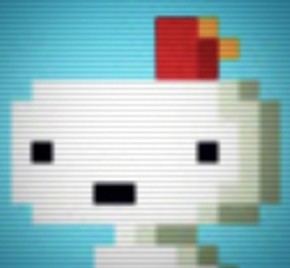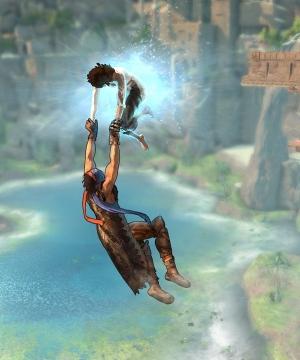Infinite lives. No gravity. Endless ammo.
Playing as Spiderman in a dress.
These are all things you can have with cheat codes. Cheating in video games is almost as old as the industry itself. The first cheat codes were completely accidental, left in by game designers after
testing and later revealed to the public. The idea caught on quick and
Nintendo's popular subscription magazine,
Nintendo Power, cashed in on the craze. They turned cheating into a market, branching out from cheat codes to hints and walk-throughs.
Players made cheating popular because it was fun! Now, new generation video games feature fewer and fewer cheat codes and more and more boring perks, like the ability to regenerate life whenever you want or spawn a random car. Gone are the days of big headed characters, fun character skins, and extreme strength.
Big titles like Call of Duty and Little Big Planet either have no cheat codes or repetitive, dull ones that we've seen time and time again. It seems cheat codes have been written right out of games, but they used to be such an integral part of gaming. We need them back.
In no way do I advocate cheating in multi-player games. I'm not talking about hackers either. You guys do your thing; I just want mine back. Well, as long as your thing doesn't bother anyone else(that's another post).
Gameception
Some might say cheat codes disturb the integrity of a game, that it distorts reality, but what happens when you put in a cheat code is actually a moment of suspension. The game is put on pause and at that time, you're playing with a game, not in a game. It becomes a plaything then. You're invincible. The story doesn't matter. The new story is yours.
A game, like life, has rules. For example, there's gravity. Physics. Life or death. Cheat codes let you create your own rules as you go along. This type of game-play is completely different from the story or plot line. Sometimes, content isn't what we're looking for.
A few weeks back, I was frustrated. Just those normal average stresses that come with being a student. I slipped
Infamous into my PS3, started a new file, so as not to disturb my morally good file, and prepared for world domination. What I got instead was more frustration, frustration with the fact that my powers at the beginning of the game were so weak, that beating up people on the street just wasn't fun. So I quit and thought about writing this post.
What happened to
sandboxes? To unlimited power? Stress release is a good reason for playing a game, no?
And you know what justifies buying a sandbox?
Consumer Codes
Face it. Video games are expensive. There are times we shell out 60 bucks for 9 hours of disappointment(Prototype...). Wouldn't you, the consumer, like some guarantee that even if a game is terrible, it'll have some use to you in the future? Cheat codes, my friends, cheat codes.
But having the ability to enjoy the game outside of its story has other pros as well. A lot of these new, story intensive games don't have the highest replay value. After one run through, you've pretty much done it all. That's when your buck stops with a bang. The game sits on a shelf simply for the purpose of player proof*. Definitely, cheat codes can make an old dog new again.
Still not convinced? Well, I love gaming. I love it so much, I want everyone to play video games. But I'll admit, picking up a controller nowadays isn't as easy as it once was. When I started playing, Nintendo controllers had three basic buttons: the directional pad, "B," and "A."
 |
| Hemingwayesque, isn't it? |
Gradually, over time, the controls became more complicated, but we grew along with them. Somehow, three buttons turned into 16 buttons. I didn't even notice it was happening! Hell, if I didn't play video games now, just looking at a PS3 controller would send me running back to Monopoly. Not to mention each console has its own type of controller.
 |
| It's alive! |
Between constantly losing health and looking at the buttons, life as a new gamer isn't easy. Games can be difficult, even hard to understand. A walkthrough can easily help a new player move past a frustrating section in the game instead of giving up. Come on, game designers! Cheat codes are in your favor!
Easy Clean-Up
Besides what I've already mentioned, cheat codes provide an outlet for creativity. Minecraft, a modifiable block world, originally began as an indie sandbox game. As it grew in popularity, cheat codes appeared that allowed players to fly and easily build structures. It became so popular that Minecraft officially incorporated it as "Creative Mode."
Will Wright, creator of SimCity and Spore, has this to say about creativity:
"It’s really been about trying to construct games around the user, making them the center of the universe. How can you give players more creative leverage and let them show off that creativity to other people?"
It's not difficult to see the potential in cheat codes for self-expression or creativity. Entire games are devoted to it. Professors encourage it. Filmmakers live in it--Why shouldn't video games?
As games advance, cheat codes devolve. We have more complicated plots, controls, and graphics but our cheat codes are limited to changing the colors of our shirts from white to grey. But let's not forget that games are also easier today than they were when they first came out. Some games like
Contra required codes just to beat them. So games today are definitely not as challenging as they were before, what with save files and unlimited lives, short chapters and incredibly quick ammo spawn times, but you can always add to the fun, to the replay value, and the creativity of a game.
And...
Yo momma so fat, she has cheat codes for Wii Fit!
Ooh, what?! Ya'll been told.
*Player Proof: Games that sit on your shelf only to make you feel more cultured or experienced.








 2:56 AM
2:56 AM
 Lissy
Lissy





 Posted in:
Posted in: 














